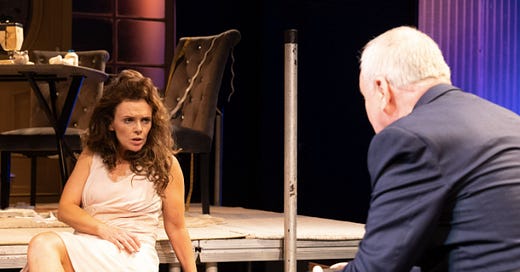The Rose Tattoo: Desire too good not to give in to
A 1950s tale of Catholic chastity becomes a battle over Traveller desire.
The Complex - The Depot, Dublin
★★★☆☆
Desire, in The Complex’s feverish play The Rose Tattoo, is something that nearly no one is too shy to talk about. In the opening moments we see Sarah, a dressmaker once living in poverty and now settled into a comfortable marriage, politely refusing a saleswoman trying to sell her an aphrodisiac. Maybe her husband needs one?
“My husband don’t need no powder,” says Sarah, assuredly played by Denise McCormack. The saleswoman – an apothecary draped in black – covers all the bases. “Maybe he needs the opposite kind of a powder. I got that too,” she says.
The individuals in Tennessee Williams’s playscript, first staged in 1950, have always talked explicitly about desire more than most characters in mid-century plays. When a customer arrives at Sarah’s house to have a shirt made for the man she is sleeping with, both women discuss “wild” men who have turned their sex life – assumed to be reserved for monogamy and marriage – into something uncurbed, potentially dangerous but also thrilling.




